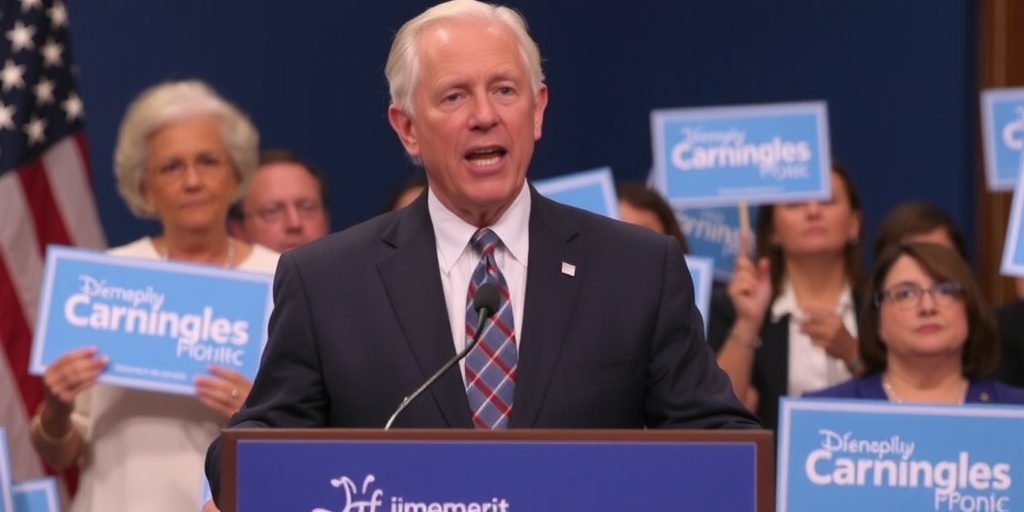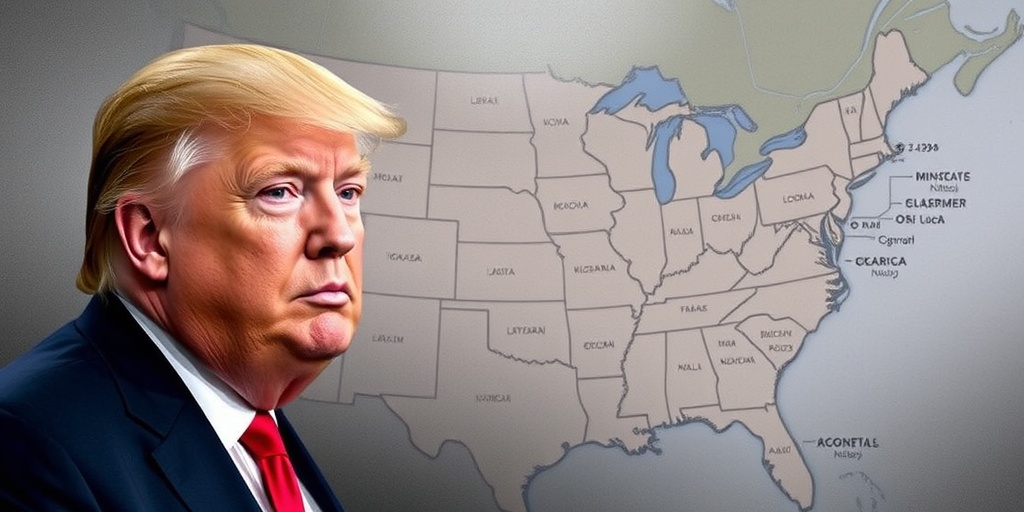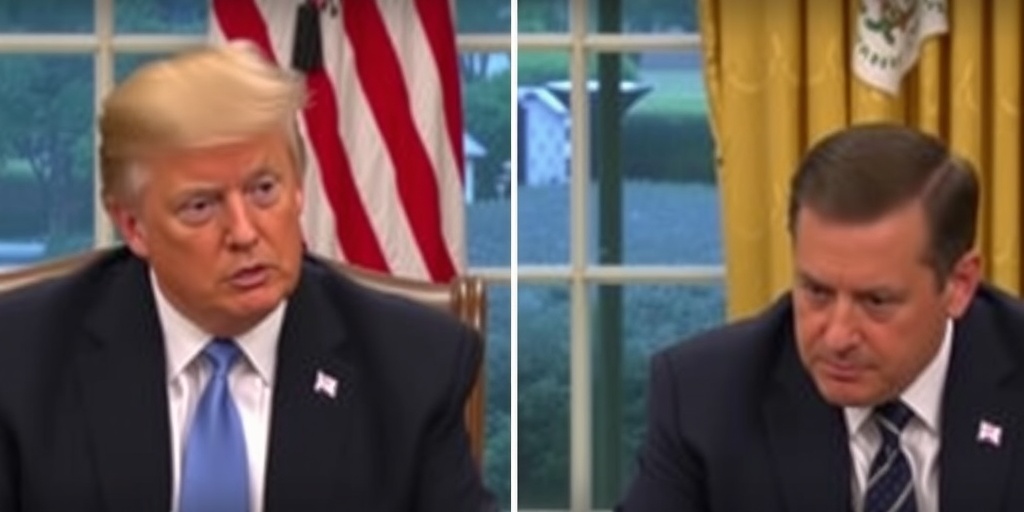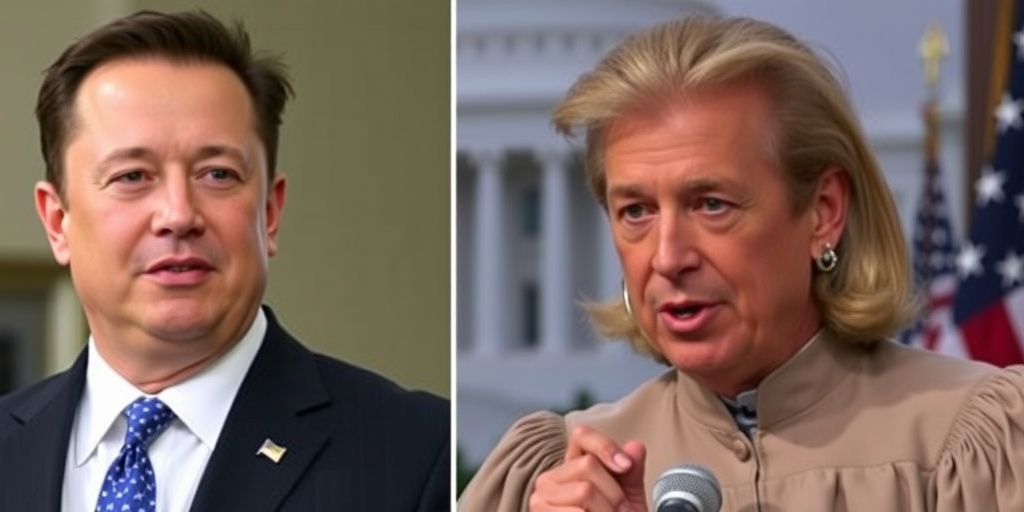Now Reading: Democrats Seize Opportunity as GOP Considers Medicaid Cuts
-
01
Democrats Seize Opportunity as GOP Considers Medicaid Cuts
Democrats Seize Opportunity as GOP Considers Medicaid Cuts

Democrats Aim to Capitalize on Republican Medicaid Cuts to Reclaim Political Momentum
In a bid to regain momentum in Congress, Democrats are looking to replicate their successful strategy from the 2018 midterm elections, where they flipped 41 seats, including in traditionally conservative areas such as Utah and Oklahoma. The key issue that drove their campaign was the Republican push to overturn the Affordable Care Act (ACA), a popular health care program. As Republicans pursue a budget resolution that is likely to necessitate cuts to Medicaid to fund substantial tax reductions, Democrats believe they might have found a similar rallying point to galvanize support among voters.
Senator Ben Ray Luján of New Mexico, who previously chaired the House Democrats’ campaign committee, expressed confusion over why Republicans are returning to the same controversial tactics. He remarked, “The town halls, people coming forward, showing up in communities all across America, filling the phone lines here in Washington, D.C. I think you can draw a direct comparison to the outcome of what happened in 2018.”
The stakes are high as Republicans are currently navigating through a landscape of budgetary and administrative challenges under President Trump’s second term. With executive orders and initiatives aimed at defunding federal programs, Democrats find a clear issue in the potential cuts to Medicaid—a program that provides health insurance to over 70 million Americans. Representative Hakeem Jeffries of New York emphasized the historical discontent stemming from similar Republican actions, pointing out, “The American people are very upset right now, including in the communities I represent, about the Republican effort to take away their health care and enact the largest cut to Medicaid in our country’s history.”
To capitalize on this developing situation, House Democrats have initiated advertising campaigns in over 20 districts, targeting Republicans directly for the implications of their budget cuts, estimated at a staggering $880 billion to Medicaid. These advertisements aim to evoke memories of past Republican attempts to dismantle health care protections, drawing parallels to the widespread protests that erupted over the ACA’s repeal in 2017.
Democratic leaders maintain that health care is intrinsically personal in politics. Representative Nancy Pelosi remarked in 2018, “We made our own environment. While the G.O.P. tried relentlessly to distract and divide, our candidates kept their focus on that subject.” Recently, similar town hall meetings have seen constituents express their dissatisfaction over Trump’s proposed cuts, a scenario reminiscent of the protests against ACA repeal. However, Republicans have largely dismissed these protests as orchestrated efforts by liberal activist groups.
Within their ranks, some Republicans have expressed concerns about the potential backlash from constituents regarding cuts to Medicaid and are advising caution in how they communicate their proposed changes. Representative Rich McCormick of Georgia acknowledged this sentiment, noting the importance of maintaining a compassionate message. He stated, “You can lose that message with one attitude, and if nothing else, we have to be careful how we message this so it doesn’t come across as dispassionate.”
There are evident fears among Republicans of repeating the mistakes of the past, particularly among lawmakers like Senator Lisa Murkowski of Alaska, who cautioned against the parallels between current proposals for Medicaid cuts and the 2017 repeal attempts.
Despite the public outcry and internal divisions, Speaker Mike Johnson has asserted that Republicans aim to identify “efficiencies” within Medicaid without cutting benefits for qualifying individuals. He mentioned, “You don’t want able-bodied workers on a program that is intended, for example, for single mothers with two small children who are just trying to make it.”
While the party has not outlined specific legislation detailing spending reductions and tax cuts, the focus remains on Medicaid. Even though many Republicans support establishing work requirements for Medicaid, achieving the necessary cuts to meet the budget plan is a daunting task and could have significant ramifications for millions of Americans who rely on the program.
Senator Josh Hawley of Missouri firmly stated, “I’m not going to vote for Medicaid cuts.” With an alarming percentage of residents in his state depending on Medicaid and related programs, he highlighted the delicate balance Republicans must strike in retaining support while addressing budgetary concerns.
Representatives such as David Valadao of California echo the sentiment that deep cuts to Medicaid are unpopular among families, pressing his party leadership to reconsider these drastic budget measures. As Valadao remarked on the House floor, “I will not support a final reconciliation bill that risks leaving them behind.”
In conclusion, as the budget negotiations unfold, the Republican strategy surrounding Medicaid remains a pivotal point of contention. With Democrats poised to leverage this issue to their advantage, the coming months promise to be crucial for both parties as they navigate this complex and politically charged landscape.
Stay Informed With the Latest & Most Important News
Previous Post
Next Post
-
 01New technology breakthrough has everyone talking right now
01New technology breakthrough has everyone talking right now -
 02Unbelievable life hack everyone needs to try today
02Unbelievable life hack everyone needs to try today -
 03Fascinating discovery found buried deep beneath the ocean
03Fascinating discovery found buried deep beneath the ocean -
 04Man invents genius device that solves everyday problems
04Man invents genius device that solves everyday problems -
 05Shocking discovery that changes what we know forever
05Shocking discovery that changes what we know forever -
 06Internet goes wild over celebrity’s unexpected fashion choice
06Internet goes wild over celebrity’s unexpected fashion choice -
 07Rare animal sighting stuns scientists and wildlife lovers
07Rare animal sighting stuns scientists and wildlife lovers





















